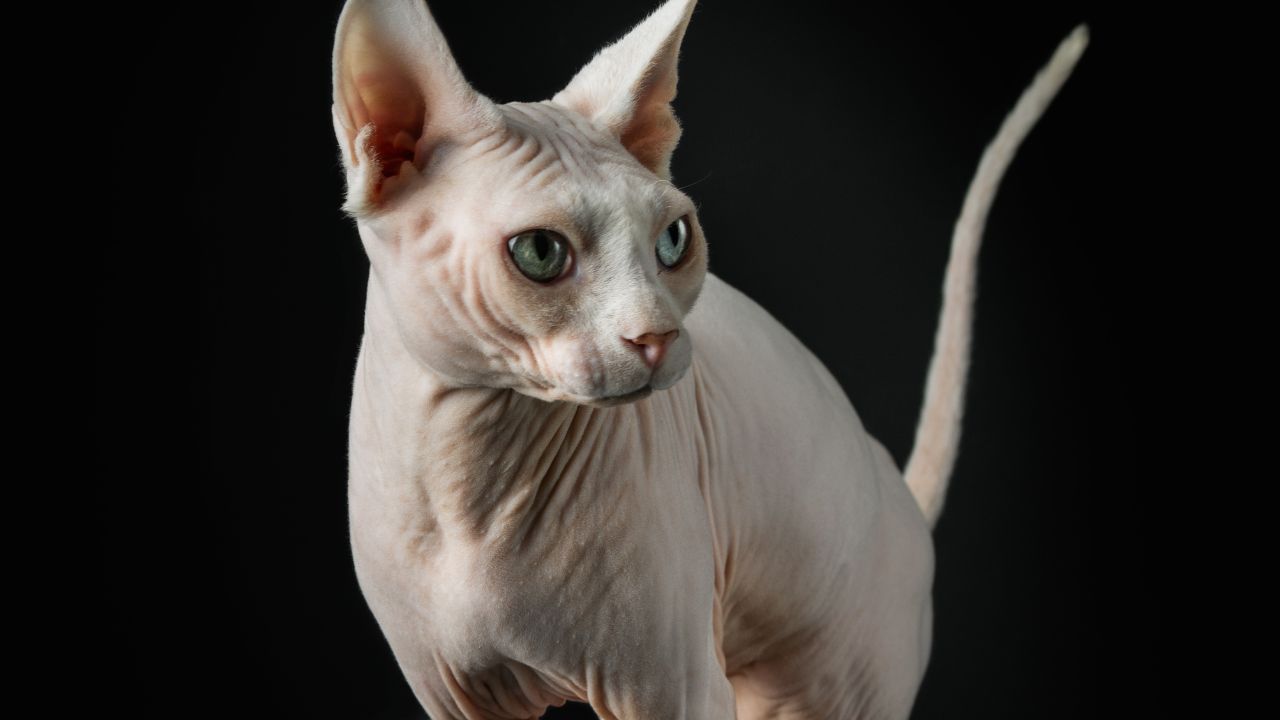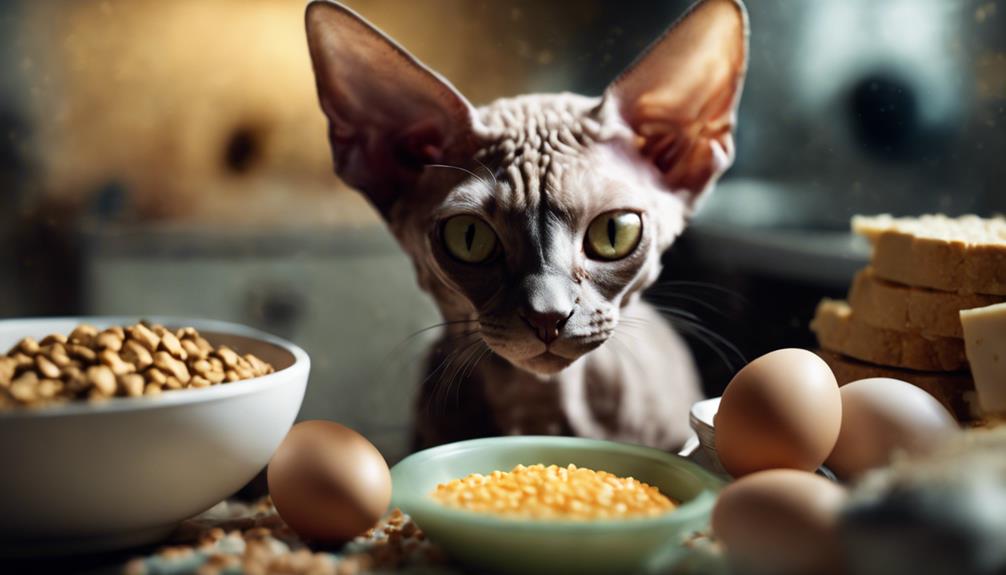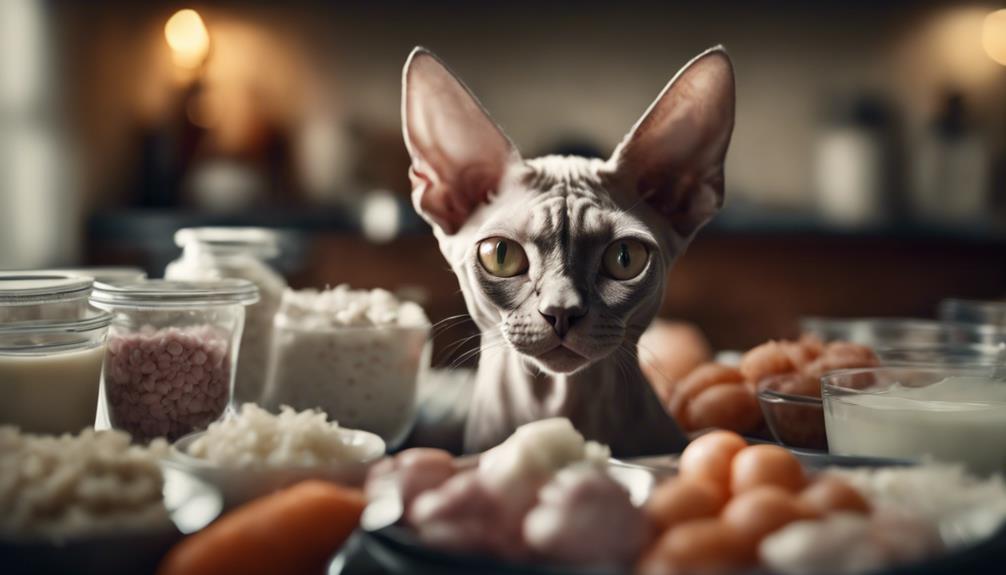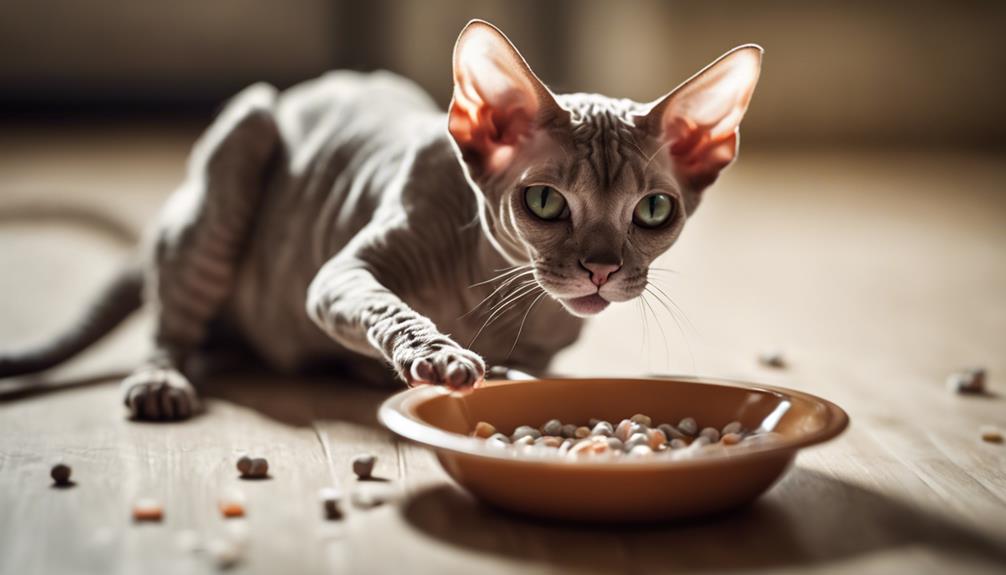Sphynx cats are a unique and fascinating breed. They are instantly recognizable due to their hairless bodies and wrinkled skin. Many people are drawn to their unusual appearance and playful personalities. In this article, we will explore the physical characteristics of the Sphynx cat breed, including their origin, history, and genetic mutation.
Sphynx cats are a relatively new breed, first appearing in the 1960s. They are the result of a genetic mutation that causes them to be born without hair. Despite their lack of fur, they are not completely bald and often have a fine downy coat. Sphynx cats are medium-sized and muscular, with a sleek, athletic build. They have large ears, lemon-shaped eyes, and a distinctive wedge-shaped head.
The history of the Sphynx cat breed is fascinating. They were first bred in Canada by a group of cat fanciers who were intrigued by the genetic mutation that caused hairlessness. Since then, the breed has gained popularity around the world. Today, there are many breeders who specialize in Sphynx cats, and the breed is recognized by the Cat Fanciers’ Association.
Physical Characteristics
The Sphynx cat is a unique breed with distinctive physical characteristics. In this section, we will discuss the different physical features of this feline, including its coat and skin, ears and eyes, whiskers, nose, and tail.
Coat and Skin
The Sphynx cat is nearly hairless, and its skin is soft, warm, and wrinkly. The cat’s skin texture is often compared to chamois leather. While the cat appears to be completely hairless, it may have some peach fuzz or a light coat of fur on its body. The cat’s skin is prone to sunburn, and it requires regular bathing to remove the buildup of oils and dead skin cells.
Ears and Eyes
The Sphynx cat has large ears that are wide and upright, much like the ears of a bat. The cat’s ears are one of its most prominent features. The cat’s eyes are set wide and are round with a slight slant at the upper corners, giving them a lemon-shaped appearance. The cat’s eyes come in a variety of colors, including blue, green, gold, and copper.
Whiskers
The Sphynx cat has short, sparse whiskers that are often curled or broken. The cat’s whiskers are not as prominent as those of other breeds, but they still serve an important function. Whiskers help the cat navigate its environment and provide sensory information about its surroundings.
Nose
The Sphynx cat has a firm, solid nose that is typically straight or slightly curved. The cat’s nose comes in a variety of colors, including black, white, and red. The color of the cat’s nose often corresponds to the color of its skin.

Tail
The Sphynx cat has a long, slender tail that tapers to a point. The cat’s tail is flexible and expressive, and it is often used to communicate mood and intention. The cat’s tail is covered in a light coat of fur, which is similar in texture to the hair on its body.
In terms of breed standards, the Sphynx cat comes in a variety of colors and patterns, including solid, tabby, tortoiseshell, and calico. The cat’s coat length is extra-short, and it has a tendency to shed very little. While the Sphynx cat is often touted as being hypoallergenic, it is important to note that no cat is completely allergen-free.
Overall, the Sphynx cat is a unique and fascinating breed with a variety of distinctive physical characteristics. From its hairless skin to its large ears and lemon-shaped eyes, the Sphynx cat is a truly one-of-a-kind feline.
Personality and Temperament
The Sphynx cat is a highly sociable and affectionate breed that craves attention and loves to be around people. They are known to be very friendly and outgoing, making them a great choice for families with children or other pets.
Sphynx cats are highly intelligent and playful, and they require a lot of mental and physical stimulation to keep them happy. They are often described as being “dog-like” in their behavior, as they love to follow their owners around and are always eager to play and interact with their human family members.
Despite their reputation for being highly energetic, Sphynx cats are also known for their calm and relaxed demeanor. They are not prone to excessive meowing or destructive behavior, and they are generally very easy to care for.
Overall, the Sphynx cat is an incredibly friendly and sociable breed that makes an excellent family pet. They are highly intelligent, playful, and affectionate, and they love nothing more than spending time with their human companions.
Grooming and Health
Grooming
Sphynx cats require regular grooming to maintain their hairless skin. They have a natural buildup of body oils, which can lead to skin infections if not cleaned regularly. It is recommended to bathe them once a week with a gentle cat shampoo. They also need their nails trimmed regularly, as their nails can grow quickly and become sharp.
Sphynx cats are prone to ear wax buildup, so it is important to clean their ears regularly. Use a damp cloth or cotton swab to gently clean their ears. However, be careful not to push the wax further down the ear canal, as this can cause an infection.
Health Problems
Like all cats, Sphynx cats can be prone to certain health problems. One common health issue in Sphynx cats is hypertrophic cardiomyopathy (HCM), a heart disease that can cause sudden death. It is important to have your Sphynx cat regularly checked by a veterinarian to monitor their heart health.
Sphynx cats are also prone to dental disease, so it is important to brush their teeth regularly and have regular dental checkups with a veterinarian. Additionally, Sphynx cats can be prone to skin infections, so it is important to keep their skin clean and watch for any signs of infection.
Other Considerations
Sphynx cats are known for their playful and intelligent personalities, and they enjoy interactive playtime with their owners. However, it is important to monitor their exercise and weight, as they can easily become overweight if not given enough exercise.
Sphynx cats are also prone to sunburn, so it is important to keep them out of direct sunlight or provide them with sun protection if they are outside. Additionally, Sphynx cats are a hereditary myopathy carrier, so it is important to have them tested before breeding.
Overall, Sphynx cats are a unique and loving breed that requires regular grooming and veterinary checkups. With proper care, they can live happy and healthy lives.




